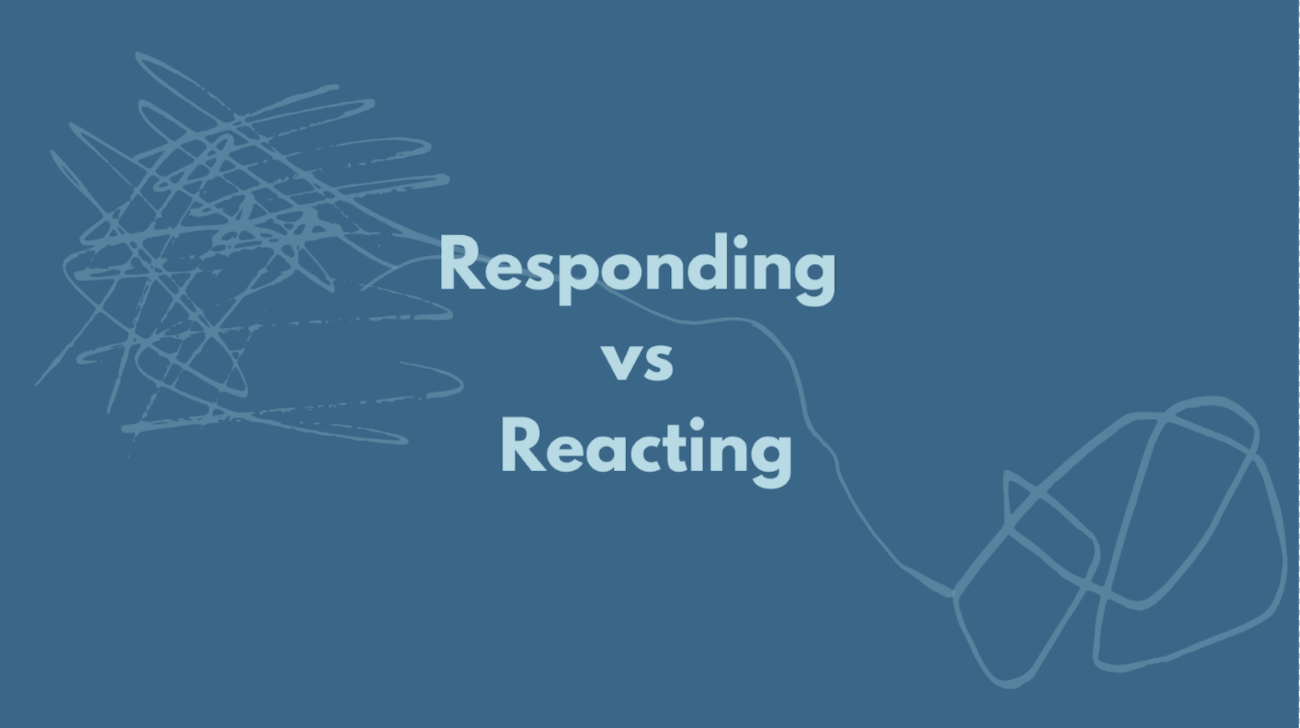
Reacting is often thought of as the quick, immediate and impulsive response to something someone has said or done. If we feel hurt by something, it may feel like we want to express all of the hurt inside us and get it out. Sometimes this can lead us to overreact to a situation. Responding is the ability to take what is happening or being said, process it with the self-awareness and perspective that we come with our own biases, triggers and values in life which may not be the same as the person we are dealing with. See some examples below of how different situations can play out depending on our responses: Situation 1: You ask your partner whether you can both go out to dinner and they tell you that they have made plans with friends. Reacting: You feel upset and says 'You care more about seeing your friends than you care about seeing me.' Responding: You feel but take 30 mins to go for a walk. After this, you still a little disappointed, but understands the other person wants to spend time with friends and says ' That sounds lovely, I hope you enjoy dinner. Can we find another night to go to dinner? I'd love to spend more time with you' Situation 2: Your friends come to you and tell you that they're worried about you and your harmful coping patterns. Reacting: You feel attacked, criticised and misunderstood, and say 'I really don't see how that's any of your business. Stop judging me, I'm doing just fine on my own.' Responding: You notice you feel criticised but you become curious about why that feeling is coming up for you. You take the others' perspective and realise they love you and are looking out for your best interest. You say 'I appreciate that you guys love and care about me. I'm struggling at the moment and I think I do need some help. Thank you for saying something.' Situation 3: You are in need of a break and your manager at work denies your request for leave, saying that 'it's just not a good time right now'. Reacting: You feel unfairly treated and taken advantage of, so you say 'I think that's so unfair. You can't even give me a day off when I give so much to this company!' and leave in a huff. Responding: You feel that you need a break, but you also understand that your manager's priorities are probably on resourcing, so you say 'I understand that work is tough at the moment and we are struggling to find the time but, I really think in order for me to do my job and be effective I need a bit of a break. What is a compromise we can come to that will still allow me to take some time off?' In order to respond a little more than we react, you can try: *Create time between 'the thing' and your response to allow your physiological response to calm *Approach your hurt with curiosity - ask yourself, 'what about this conversation or action is hurting me?' *Focus on actively listening to the person - what are they trying to express to you? *Practice being mindfully present - this can help us shift our focus to having a healthy conversation *Look within - self-awareness can help us understand ourselves and act with integrity and in alignment with our values

